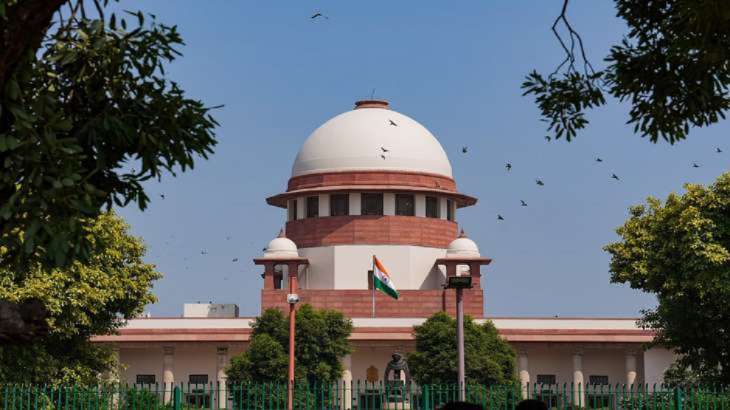
Delhi: The Supreme Court on Thursday said its job is to enforce the existing law and it was “troubled” that several names recommended by the Collegium for appointment of judges to the higher judiciary were kept pending by the Center for a long time. The top court noted that due to the long process of appointment of judges and delay in clearing names, many prospective judges are withdrawing their consent to be elevated to the bench, which has always been considered an “honour”.
Hearing the matter of long delay by the Center in approving the names suggested by the collegium, a bench headed by Justice SK Kaul said, before the last hearing, 19 names were sent back by the government to the collegium. “How’s this ping-pong fight going to end?” asked the bench, also comprising Justices AS Oka and Vikram Nath. It said, “We were troubled by the fact that many names were pending for months and years and some cases were repeated.”
The apex court’s noted Attorney General R Venkataramani submitted a status report before it on December 7 which referred to the Memorandum of Procedure (MoP) for appointment of high court judges. Justice Kaul said, “Once the Collegium in its wisdom or you may think lack thereof has stated that this is the basis on which it has worked out the MoP…there is no vacillation in it.”
The bench said that once the MOP issue was over, the government should not have referred to the views of the two judges of the seven-judge bench in a subsequent judgment to justify the delay. “Whether a two-judge opinion can override a five-judge constitutional order laying down the process of MoP as the final view to be taken by the collegium,” the bench asked. She said that the note placed before her referred to a July 2017 judgment in which it was said that certain observations were made by two judges, who were part of a seven-judge bench.
The bench noted that it has been stated before it that it has given rise to a thought process in the government that it needs to be looked into and the MoP needs to be reformed. It said that the MoP is final but it does not mean that if the government thinks that it needs to be amended, it cannot be looked into. “But till that happens, the existing MoP will be applicable,” it said. The bench said that promotion to the bench has always been considered an honour.
“However, there has been reluctance on the part of successful lawyers to accept the honor and what we have stated in the previous order is out of experience of not being able to persuade such eminent persons to join the Bench.” The bench said that the long process of appointment is a factor and the result is that many times people withdraw their consent for promotion to the bench. It said the report placed before it also attempted to highlight the likely vacancies in the next six months.
It added, “There is no hesitation in saying that the High Courts must take effective steps to make timely recommendations.” On the issue of the Government sending back the names duplicated by the collegium, the bench asked the Attorney General as to how the duplicate names were being sent back under the scheme of the prevailing law.
The bench noted that the Attorney General has stated that in the earlier two cases, in such a scenario the collegium had decided to drop the recommendations. The top court said it was not aware of the specific circumstances in which the names were removed. It said that another issue which has been highlighted earlier is that when recommendations are made by the collegium, the seniority prescribed therein should be followed. The bench, which observed that the government should address the issue, said that the Attorney General has assured that he will deliberate further on these issues flagged by the court.
The top court, which posted the matter for hearing again on January 6, said it is necessary that everyone should follow the laid down law.
“We have written a very general order…” it was observed. At the outset, the bench observed that the National Judicial Appointments Commission (NJAC) Act passed by the Parliament does not pass the muster of the constitutional mandate. “As long as the law is in force, it should be followed,” it observed.
Hearing the matter on November 28, Justice Kaul had said that it appears that the government is unhappy with the fact that the NJAC Act has not passed muster, but that cannot be a reason for not following the law of the land.
The top court in its 2015 judgment had struck down the NJAC Act and the Constitution (99th Amendment) Act, 2014, thereby reviving the existing judges’ collegium system of appointing judges to constitutional courts. During the hearing on Thursday, the bench referred to the process of appointment of judges in the higher judiciary, which includes the recommendation of the collegium, and said that the views of the government have also been taken into account.
“There cannot be any unknown reason in such a system where we can say that after taking the view of the government and taking the approval of the court, it gets blocked until certain facts emerge for which the government Sends back recommendations.” Said this.
The bench said there is “no other way” provided by the constitution bench once the collegium reiterates the name after considering the view of the government. “You have to appoint. This is the position. You are sending names twice, thrice,” it added.
Read this also | SC statement on collegium, said- existing system should not be derailed